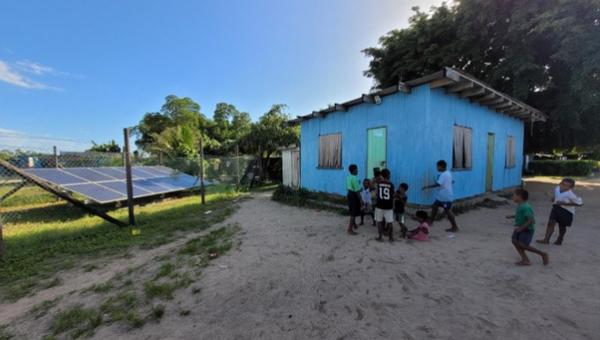REMOTE communities in Cakaudrove and Kadavu will soon gain reliable renewable electricity under a $US3million ($F6.7m) grant from the Government of Japan.
The initiative, known as the Fiji Rural Electrification Support Project, will directly benefit around 190 households across the two provinces by replacing diesel dependence with hydropower and solar energy.
Public Works Minister Ro Filipe Tuisawau told Parliament the project would deliver two major upgrades. The first involves expanding the Buca mini-hydro system from 30kW to 100kW, supplying low-cost renewable energy to about 120 households or roughly 720 villagers in Cakaudrove.
“This will provide reliable clean power and replace diesel generation with hydropower,” he said.
The second component will feature the installation of a 100kW solar mini-grid with battery storage in Tiliva Village, Kadavu, which will electrify 70 households and benefit about 350 people.
Currently, villagers face limited or unstable power supply.
Ro Filipe said installation would begin in the first quarter of 2026, with completion by late 2026 or early 2027.
He stressed the project would bring lasting benefits for households, schools and small businesses in the targeted communities.
“Reliable and affordable energy is critical for improving living standards in our rural areas, particularly for children in school and for access to health services.”
The minister added that clean power would also stimulate local economic activity by enabling refrigeration, communications and new income opportunities.
“This project reflects our commitment to energy equity ensuring even the most remote communities share in the benefits of Fiji’s renewable energy transition.”
The Japan-funded project complements broader government efforts to achieve 100 per cent electricity access by 2029 and reduce greenhouse gas emissions by 2030.
Work in progress to restore solar system
THE Government says it is working with development partners to restore the Namara solar hybrid system in Kadavu, which has been out of operation since February 2022.
Public Works Minister Ro Filipe Tuisawau told Parliament the 30kW system, funded by the Korean Institute of Energy Technology Evaluation and Planning, was commissioned in December 2018.
He said the commissioning marked a significant milestone in the Government’s efforts to provide sustainable and clean energy solutions to remote communities.
“However, in February 2022, the system experienced a critical malfunction, which resulted in the failure of the battery component, thereby affecting its operational capacity,” he added.
A technical assessment by KOICA engineers placed the restoration cost at about $1million.
Ro Filipe said the Government had sought confirmation of funding from KOICA but was also preparing a backup plan.
“The ministry is currently awaiting formal confirmation of funding support from KOICA, and we remain optimistic that this will be secured soon.
“At the same time, the ministry is working on a special submission to the Ministry of Finance in case the KOICA option is further delayed.”
In the meantime, a 44kVA diesel generator has been deployed to meet the energy needs of Namara villagers.
Ro Filipe said while the generator was only a temporary measure, the Government remained committed to restoring the solar hybrid system as part of its renewable energy agenda.
Opposition MP Jone Usamate, who raised the issue, urged the Government to secure funding quickly.
He also asked about hybrid projects in Vunisea, to which Ro Filipe confirmed work was underway under the LaKaro Project supported by the UAE and New Zealand.
Solar training, testing hub
FIJI will establish a regional solar training and testing hub at the Fiji National University’s Samabula campus to boost renewable energy skills and ensure the quality of solar equipment entering the market.
The Solar Technology and Application Resource Centre (STAR-C) is being developed in partnership with the International Solar Alliance (ISA), with Fiji among the first countries to ratify the ISA framework agreement.
Public Works Minister Ro Filipe Tuisawau told Parliament the project was designed to overcome major challenges in Fiji’s solar market, including skills gaps, affordability, quality control and supply chain barriers.
“The STAR-C will be funded by ISA for its first two years of operation, with allocations of approximately $296,000 in the first year, and $287,000 in the second year,” he said.
From year three onwards, the centre is expected to become self-sustaining and operate as a fully-fledged regional facility. It will offer tailored training for solar researchers, technicians, designers, project managers and communities, as well as provide testing services to ensure all solar equipment complies with Fiji’s standards and specifications.
The minister said STAR-would support entrepreneurship in the renewable energy sector, creating opportunities for local innovators to develop solar solutions suited to Fiji’s conditions.
“It will provide equipment testing and entrepreneurial support, while ensuring all solar equipment in Fiji meets quality control and assurance that complies with local standards,” he said.
The centre is expected to be commissioned by the first quarter of 2026, positioning Fiji as a Pacific leader in solar training and technology.
“This will not only strengthen our local workforce but also contribute to regional capacity building in renewable energy,” Ro Filipe said.



